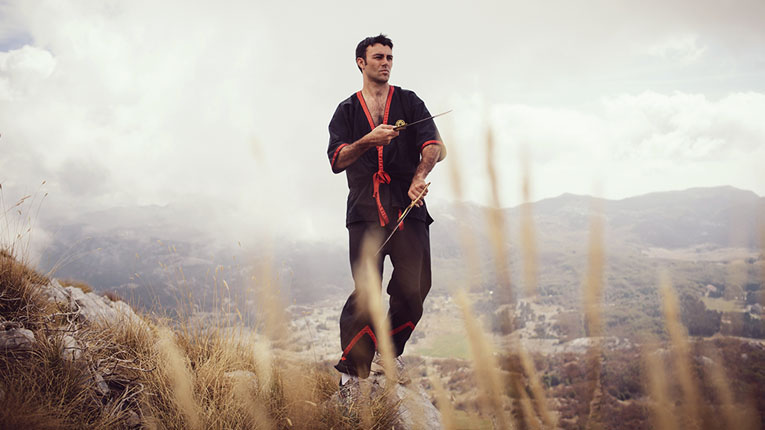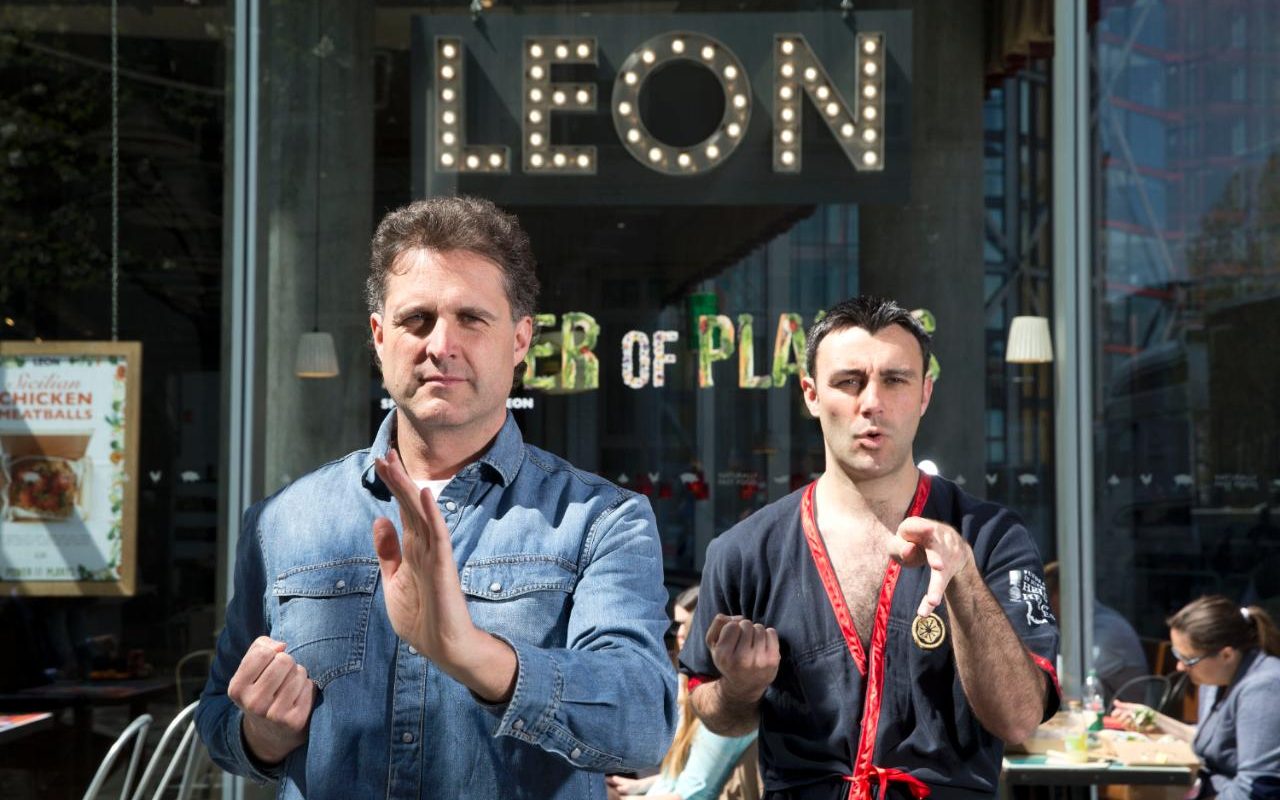Julian Hitch on how to create a sustainable business

Posted: Fri 30th Apr 2021
When Julian Hitch was appointed Leon's director of wellbeing in 2016, he was asked by founder John Vincent to bring wellness into the workplace - via wing tsun kung fu, a Chinese martial art that Julian is a world-renowned master of.
Julian's methods involved a change of culture, a change of practice - even a change of language. And, five years down the line, Leon is very peacefully, very harmoniously, reaping the rewards.
Ahead of his 'Is always-on always the best?' session at Dell Technologies' Turn Off, Tune In event series - part of Dell Small Business Month - Julian shared his thoughts on burnout, contemporary workplace culture, and how small business owners can replicate his achievements at Leon.
Julian, how should companies go about addressing burnout?
"The only way you can address burnout is by understanding the motivations for that person's burnout. The question is twofold. Firstly: what drives you? Secondly: why do you feel you need to do more?
"I'll give you the analogy of bringing martial arts into Leon. 'Martial' is the discipline, the structure. 'Art' is the freedom. In a business you want a structure that creates freedom, not one that ties you in knots.
"Companies generally aren't very good at creating freedom, but they're very good at taking it away. The way to start is by looking at your motivations - if you're creative, what's your expectation of the company you're working for?

"Having an awareness of other people's way of working and thinking is crucial for understanding burnout. This is what companies need to understand. They can make a workplace nourishing or not nourishing.
"If they think you will come to work like a machine for eight hours a day, they've got another thing coming."
Why do you think busyness - perhaps a precursor to burnout - is seen as a virtue?
"It comes down to schooling. At school, do they ask 'Who are you? How do you feel about that?' No, you're used to being told: Charlie, you need to do this. Charlie, success means that. Charlie, do well in your GCSEs, and then you have a chance of a good job.
"But then you need to do your A Levels. If you don't do your A Levels, your life is over. Then you need a degree. Now you can get a job. But then you need to work your way through the job. Then what? There's no meaning of life, which is why burnout is a fundamental question on society.
"At school, Johnny who worked hard was seen as the person who did well. Johnny who was creative, who thought differently, less so. That's why you have the entrepreneur maverick. They're the ones who go: 'Screw this.'
"So within a company, after you've asked people individually about their motivations and expectations, ask yourself as an organisation: 'What is our purpose?' Then ask yourself why you want to do wellbeing, why you care. Things won't change unless you genuinely care."
You mention the entrepreneur maverick. Are they under more pressure because a) they're expected to be good at everything and b) they run the risk of expecting anyone they employ to work non-stop like them?
"Entrepreneurs need to carve out time to ask themselves: 'Why am I doing this? What do I want from this role?' They also have to ask: 'What is my skill?' I'm not good at accounting, for example. It's not my forte. There are things I'm good at and things I'm terrible at.

"Very early on I learned: I'm not doing my accounts. I'm going to pay someone and I'm going to concentrate on my forte, which is going out and being the deliverer, the teacher, the creative. I'm not the person who sits down, looks at everything and says 'Oh, I could have saved £200 here.' An expert who enjoys doing it can tell me that.
"You have to factor in that you can't be all things, and that there are costs with running a business. It starts with self-awareness. I know that I like detail but not routine. So when someone says, 'I just love filling in spreadsheets', I'm like, 'Perfect, what can I do to make your life more pleasurable? Because you're going to make my life more pleasant.'"
When small businesses recruit for these key roles, whether full-time or freelance, is it a case of recognising the person rather than simply the role?
"It should be like dating. You want to make sure that they're as happy with you as you are with them. There has to be that mutual awareness - that's what sets the culture.
"When you've got that level contentment, you can have a bad day and your employees will understand that your bad day is not aimed at them. For small businesses, that's really important."
Tell me a little about your work with Leon, and how this could apply to small businesses...
"When you look at a business, there are lots of ways for it to be efficient. But there isn't so much a way that's going to give everyone that harmonious satisfaction. There's so much short-termism in so many things.

"What we wanted to do at Leon is create a long-term sustainable business that's good for people inside and out, and the martial arts aspect provided a very simple framework.
"The other thing I would say to entrepreneurs is think about the metaphors and words you choose to describe what you're trying to do. Do you need to annihilate the competition? Or do you just need to be the best at what you do? This is what Leon does. Leon isn't anti McDonald's.
"Language makes a huge difference to how we think and feel. If I said that you need to fight for your job, that you need to step up and start smashing those results, what effect do you think it would have on your central nervous system?
"You'd go into fight or flight mode. You can't work well in this mode because you have short-term memory loss, your gut stops working, and you have no peripheral vision. You can't think creatively because you're trying to defend yourself as if you were being attacked."
In our 'always-on' culture there's constant pressure to stay close to our screens. But we shouldn't feel like this, right?
"Moving can get you into more of a flow state. One of the things we're told at school is try harder to think more. But actually, you need to move first to create the thought.
"Entrepreneurs need to move, and not feel guilty for moving. Moving will make a difference. If you don't move, you'll get stuck in a rut. When you start building a company culture, allow people time to move. Give them tools - or allow them to find their own tools - to get them moving.
"At Leon, we put in trampolines. They're amazing because they stimulate the immune system. We also do breathing exercises, which switch people from fight and flight to rest and digest. Breathing is so fundamental, yet most of us don't breathe right."
Need help with building your dream business?
No problem! As an Enterprise Nation member, you'll get free access to in-depth resources on everything from business plans and marketing to finance and sales. Join today for the full range of member benefits!
Get business support right to your inbox
Subscribe to our newsletter to receive business tips, learn about new funding programmes, join upcoming events, take e-learning courses, and more.
Start your business journey today
Take the first step to successfully starting and growing your business.
Join for free

